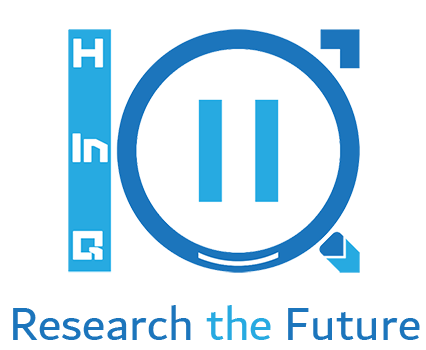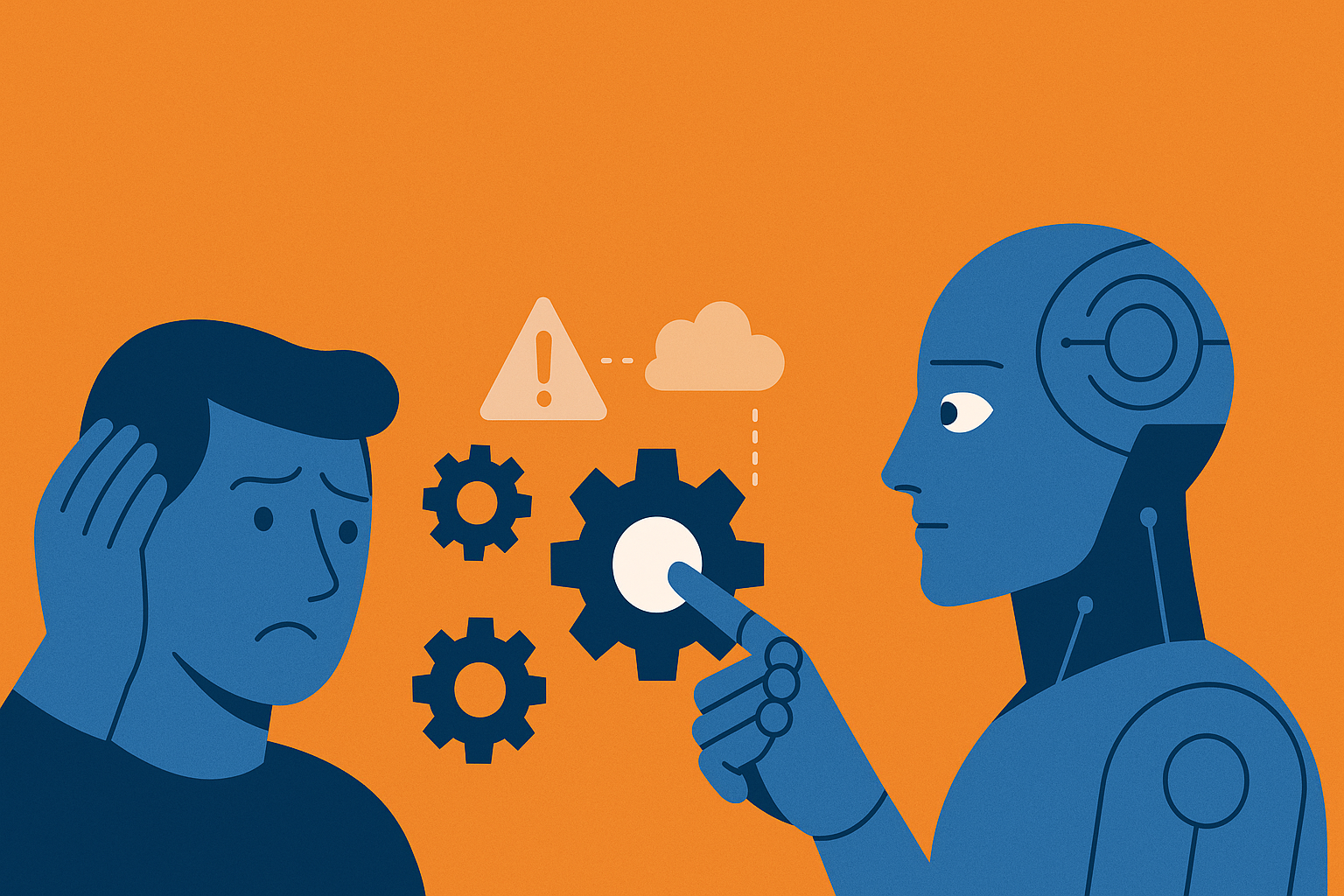Automation Anxiety: The Productivity Paradox
The rise of artificial intelligence has triggered a strange paradox in the business world: while AI promises greater productivity, it also stirs a deep fear of displacement. For marketers and CEOs alike, the question looms large — will automation streamline our efforts or sideline our careers?
This anxiety isn’t just theoretical. With each new AI tool promising to write copy, analyze data, or run entire ad campaigns, the boundaries between human and machine contributions are becoming blurred. Job descriptions are shifting, and many professionals are asking: if AI can do it better, faster, and cheaper — where does that leave us?
But buried within this fear is a deeper opportunity. AI isn’t just an agent of elimination; it’s also an engine of transformation. Those who see automation purely as a threat risk missing the bigger picture — that the future of marketing, and work itself, will be defined not by replacement, but by reinvention.
To truly understand the impact of AI, we must also reconsider the metrics by which we define success. It’s not just about how many jobs are lost or saved, but how roles evolve, how efficiency scales, and how new forms of value emerge from this transition. The conversation around AI and jobs is really a conversation about adaptability, relevance, and foresight.
Not Jobs — Tasks: What AI Is Really After
Much of the panic around AI stems from a misunderstanding. AI doesn’t come for jobs in their entirety; it targets the repeatable, time-consuming tasks within them. For marketers, that means data entry, A/B testing, keyword optimization — the routine but necessary functions that often bog down creativity.
What this really signals is a shift in what we value. Tasks that were once considered part of the marketer’s daily grind are now executed in seconds by AI. That’s not replacement — it’s liberation. Freed from the busywork, marketers can focus more on strategy, storytelling, and customer engagement — areas where human intuition still leads.
In essence, AI is unbundling the job. Instead of wiping out entire roles, it’s slicing away the parts that machines can handle better, leaving behind a more focused, high-impact version of the original. The real challenge is not about job security — it’s about skill reallocation.
This transformation is already visible in many marketing departments. Social media managers, for example, are spending less time manually scheduling posts and more time interpreting engagement data to inform brand voice. Copywriters are using AI-generated drafts as a launchpad, not a replacement. These small shifts mark a larger trend: AI doesn’t erase the human element; it enhances it.
Moreover, this reallocation isn’t limited to marketing. Customer support teams are evolving into customer experience strategists, using AI to triage inquiries and focus on high-value interactions. Sales teams are leveraging AI insights to prioritize leads and tailor outreach. Across the board, AI is nudging professionals toward roles that are more strategic, nuanced, and human-centric.
Scaling Without Hiring: AI’s ROI for Marketers
For marketers, AI isn’t just a timesaver — it’s a growth multiplier. With the right tools, a lean team can launch campaigns across multiple platforms, personalize content at scale, and optimize performance in real time. And all of it can happen without expanding headcount or inflating budgets.
AI-powered analytics reveal patterns humans would miss. Natural language tools generate ad copy, subject lines, and blog posts that match brand tone. Machine learning models forecast campaign outcomes before a single dollar is spent. The result is a marketing operation that runs smarter, not harder — with higher ROI per dollar invested.
What’s more, AI enables real-time responsiveness. Imagine a campaign that auto-adjusts messaging based on audience behavior or environmental triggers. That’s not futuristic fantasy; it’s happening now, and the implications for engagement metrics are massive.
AI also allows for hyper-personalization at scale, something previously impossible without massive teams. From email segmentation to dynamic web content, marketers can now deliver targeted experiences based on granular user data, improving conversion rates and customer satisfaction simultaneously.
This isn’t about replacing marketers — it’s about enabling them. In a landscape where speed and relevance win, AI provides the edge. The brands that thrive will be those that equip their teams not just with creativity, but with intelligent systems that amplify it.
The CEO Balancing Act: Efficiency vs. Empathy
For CEOs, AI presents a seductive proposition: reduce costs, increase output, and optimize performance — all without adding more people. But leadership today demands more than operational efficiency; it requires empathy, foresight, and a clear-eyed view of long-term value creation.
Replacing staff with algorithms may please shareholders in the short term, but it risks hollowing out company culture, losing institutional knowledge, and breeding mistrust among teams. The smarter path is integration, not substitution — where AI augments human capabilities rather than overrides them.
Executives must walk a fine line. They need to invest in cutting-edge tools while also investing in people: retraining teams, redefining roles, and reinforcing the company’s commitment to human capital. The leaders who get this right won’t just run efficient companies — they’ll build resilient ones, capable of thriving in the turbulence of tech-driven transformation.
An effective CEO must also become a translator — interpreting what AI can and cannot do, setting expectations internally, and communicating those shifts externally. It’s not enough to deploy AI; leaders must define a vision for how it reshapes value.
Furthermore, smart leadership means embracing ethical responsibility. CEOs should lead discussions about AI transparency, data ethics, and workforce transition planning. These aren’t technical details — they’re strategic imperatives that define the character and credibility of modern businesses.
Beyond Replacement: How AI Rewrites the Role book
The narrative that AI will replace humans is not only oversimplified — it’s outdated. What’s actually happening is a redefinition of roles. Marketers are becoming data interpreters, content strategists are evolving into AI curators, and customer experience teams are learning to orchestrate human-machine interactions with precision.
In this new landscape, success will belong to those who adapt fastest — not to machines, but to people who understand how to work with them. The best talent will be fluent in both creativity and computation, blending instinct with insight, storytelling with statistics.
Educational institutions and employers must also step up. Schools need to teach digital fluency alongside traditional marketing principles. Companies must provide ongoing learning opportunities so employees can evolve with their tools, not fall behind them.
This is not the end of work — it’s the end of routine. The age of hybrid intelligence is here, and the most valuable professionals will be those who know when to let the machine lead — and when to step in with the irreplaceable human touch.
And in that future, the most successful organizations won’t be those with the most advanced AI, but those that master the art of collaboration — between human creativity and machine logic, between strategic vision and technological execution. It’s not about humans versus AI. It’s about humans plus AI.
Ressources
- AI Is Changing Work — and Leaders Need to Adapt
- World Economic Forum – Future of Jobs Report
- McKinsey – Jobs Lost, Jobs Gained: Workforce Transitions in a Time of Automation
- Analytics at H-in-Q



